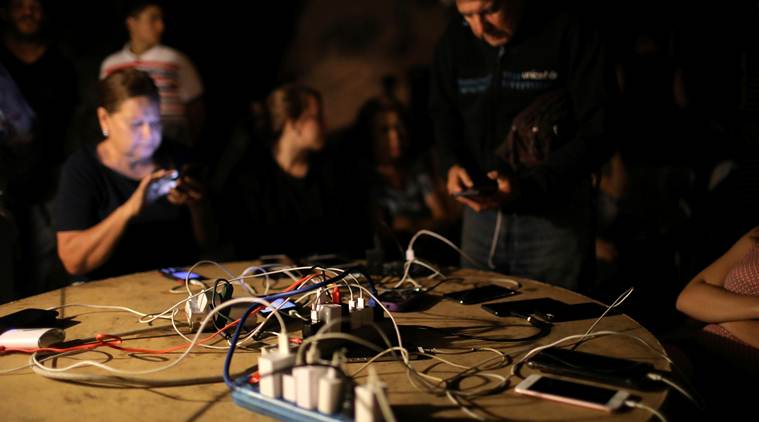
Written by Ana Vanessa Herrero
Much of Venezuela, including the capital, Caracas, was without electricity Monday evening, as the country suffered its fourth major blackout in less than five months.
The country’s communications minister, Jorge Rodríguez, blamed “an electromagnetic attack” on Venezuela’s hydroelectric system for the power failure. He provided no details about who might have been behind the attack or how it was carried out.
A nationwide power failure in March affected much of the country for over a week, collapsing basic services like public transportation and food delivery and storage.
President Nicolás Maduro accused the United States of orchestrating that power failure. “The electrical war announced and directed by the imperialist United States against our people will be defeated,” he said on Twitter.
On Monday night, a brief televised statement by the information minister left many basic questions unanswered, including how many states were affected. Unconfirmed reports on social media said 23 of Venezuela’s 24 states were without power.
The blackout started at 4:45 p.m., just as many Venezuelans were returning from work or going to second jobs.
“I was just heading to work again when the lights went off,” said Pedro Rojas, 40, a businessman in Caracas. “I just thought it was momentary, because this always happens here. When I started hearing rumors about it being nationwide, then I understood it was happening again.”
According to a Reuters report, power returned for about 10 minutes to parts of the southeastern state of Bolivar, site of the Guri hydroelectric dam — the source of most of Venezuela’s generation — but went out again.
“It terrifies me to think we are facing a national blackout again,” Maria Luisa Rivero, a business owner in the central state of Carabobo, told Reuters.
“The first thing I did was run to freeze my food so that it does not go bad like it did like the last time in March,” she said. “It costs a lot to buy food just to lose it.”
Venezuela’s economic collapse is the single largest outside of war in at least 45 years, economists say.
Millions of Venezuelans have fled to neighboring countries, and those who remain face staggering inflation, food shortages, surging crime and depleted medical supplies in hospitals.
For months, the country has been at a political standoff between Maduro and an opposition led by Juan Guaidó, who has been recognized by the United States and around 50 other countries as Venezuela’s interim president.
Shortly after Rodríguez spoke, Guaidó took to Twitter to address the chaotic situation.
“They destroyed the electrical system and have no answers,” he said.
Guaidó called for Venezuelans to take the streets on Tuesday, six months after he first declared himself interim president in front of hundreds of thousands of cheering supporters.